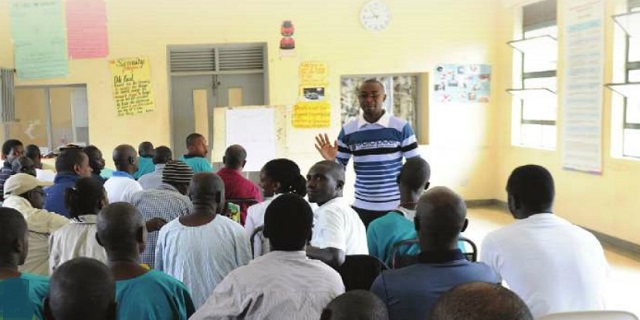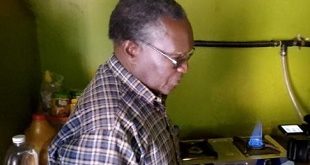According to Dr. Emilio Ovuga, a Professor of Psychiatry and Mental Health, up to 30% of Ugandans suffer from depressive illness, the commonest and most debilitating form of mental illness that affects humanity; and up to 35% of Ugandans in rural communities affected by conflict in Northern Uganda are suicidal with 36% of individuals reporting the experience of suicide among close relatives or within their communities in the previous year. Up to 14% of ordinary adults in rural communities report having ever attempted suicide in their lives.
Most of these mental conditions can be alleviated by the approach Basangwa and his team are using. Numerous studies have shown that gazing at serene green gardens often speeds up healing from most ailments, including surgery. The gardens cause relaxation and restore patients from mental and emotional fatigue. Some theories claim people prefer such views because they are reminiscent of the savannas where humans evolved. On the other hand, as Basangwa explains; loud sounds disrupt sleep, and a dirty disorderly environment stresses patients and retards recovery. Butabika is also attempting to change the belief in superstition, tackle stigma, and giving patients hope in life. For this, the hospital holds weekly “assertive skills training” session, where patients –who the staff call clients – tend to share inspirational stories and give others hope that they are not alone in whatever they are going through.
But challenges remain. Basangwa says while patients are on an increase with the addiction unit having the highest, the resources are not increasing at the same rate. He says although it has a bed capacity of 550, the hospital currently has about 950 patients.
Despite this, in the recently read 2016/17 national budget, the hospital was allocated Shs11.04 billion from Shs9.27 billion in FY 2015/16. That is a 20% increment, which is quite large by national standards. But Basangwa says it is a “slight increment” which will go mainly to capital development, meaning it will either build infrastructure or buy long term equipment. Basangwa said the plan is to complete a private ward and also build an alcohol and drug unit.

Working on a tight budget
Drugs often run-out at Butabika just as in any other government health facility because the National Drug Authority rarely gives them the full-order of drugs.
“If I send a request of 20 drugs to National Medical Stores, I get them but I find myself getting 15 or 16,” says Basangwa. Patients that can afford are compelled to buy medicines from private pharmacies.
In terms of human resources, the hospital has 240 psychiatric nurses, 9 medical workers and 8 psychiatrists. These of course are few considering that mental health cases are on an increase and that patients need constant monitoring and time. Basangwa says the numbers are based on a very old staff structure that has not been reviewed in a long time and seems it may not be changed any time soon. To give a fair medical worker to patient ratio, he says the hospital needs about 350 nurses, 16 psychiatrists, and 15 medical officers.
Basangwa says he has had to adjust to meet the challenges of working with a tight budget.
“An executive director working with small resources doesn’t sit and relax but you constantly supervise your team to ensure that they deliver even with the challenges. This is working for us,” he says.
The he also communicates the challenges to staff.
“We’ve made it known to staff that we are working with a small budget,” he says.
Still, a psychiatrist nurse said even though they are committed to work, they are most times overwhelmed by the numbers and often have to develop ingenious ways of coping. One of these involves the patients themselves. Apparently, quickly recovering patients are trained into supporting those patients that are struggling in terms of physical activity and emotional support.
“Patients are participating in their own care because you can’t keep track of everyone,” the nurse said, “For instance patients here call their colleagues to take their medicine. In another hospital setting, patients just focus on their own recovery.”
There is also concern that even with a lot achieved in providing holistic care at the hospital, the children’s ward is still lagging behind. Here treatment is mainly medicine-based yet medicine is recommended as the last resort for children. One nurse said the children health needs could benefit more from things like games to stimulate them. The children also need more constant monitoring to review what each patient’s most important needs are.
Alongside the in-patient department that solely handles mental health cases, Butabika Hospital also runs an outpatient department which has two divisions – mental health that caters for patients who have been discharged but continue reporting for follow up and the General health division which handles mainly family planning, specialised HIV care, Tuberculosis and antenatal care. It handles about 50 patients daily.
****
editor@independent.co.ug
 The Independent Uganda: You get the Truth we Pay the Price
The Independent Uganda: You get the Truth we Pay the Price


